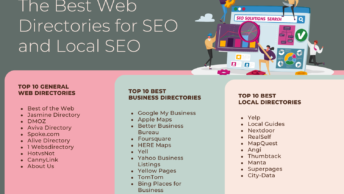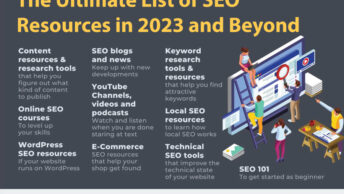The success of both your organic SEO and your PPC campaigns rely directly upon keyword research. Target the right keywords, and you’ll get quality traffic from customers who are ready to buy your products and services. Target the wrong keywords, on the other hand, and you’ll get buried in the search results and/or get low-quality traffic that doesn’t convert.
• Do: Focus on long-tail phrases—Long-tail keywords are those phrases that are very specific to the product or service you’re selling. As an example, let’s suppose you offer dinner cruises in Galveston, Texas. Some potential long-tail keyword phrases include:
1. Galveston dinner cruises
2. Dinner cruise in Galveston
3. Romantic dinner cruise in Galveston, Texas
Now, these are just a few basic examples, but the point is that long-tail keywords very specifically describe what you have to offer. As a result, these phrases tend to be easier to rank for, and they often attract customers who are late in the buying cycle. This means a higher conversion rate from the higher quality traffic you’re receiving.
• Don’t: Target keywords that are too broad—Before I became a freelance copywriter, I worked as a copywriter at an SEO firm in Houston. While I was there, we had a client that manufactured and sold windows. The client told us that he wanted to rank #1 in Google for the term “windows.” Clearly, he didn’t understand that: 1. It would be impossible to make that happen and 2. Targeting broad keywords is a poor strategy as it attracts low-quality traffic that’s next to impossible to convert.
• Do: Target seasonal keywords—Seasonal keyword research lets you target phrases that get high search volumes for a brief period of time each year. For example, people will likely search for ski apparel during the fall and winter months. Likewise, searchers looking for swimsuits and sun block will probably be doing so during the spring and summer months. Use Google Trends to analyze seasonal search volume for various keywords in your niche.
• Don’t: View keyword research as a one-time task—Keywords are always evolving. There are new phrases to target and new search trends to jump on. Never assume that once you’ve done your keyword research, you never need to do it again. Keyword research should be performed on a regular basis to ensure you’re getting maximum search engine exposure.
• Do: Study your competition—Studying your competition’s SEO efforts is important for a few reasons.
1. It lets you gauge your chances of ranking well for certain keywords
2. It allows you to identify and capitalize keyword phrases they’re overlooking
3. It helps you find new keywords to target
Competition analysis should always be apart of your SEO campaign and keyword research process.
• Do: Localize your keywords if applicable—Are your products or services available only in a specific region? If so, you should geographically target your keywords to reflect this. The earlier example of “Galveston dinner cruises” is an example of properly localizing your keywords. Targeting geographically-specific keywords attracts higher-quality traffic and makes it easier to grab top search engine placement.
• Don’t: Assume all keyword research must be done online—Before you use your favorite online keyword research tool, spend time doing some offline brainstorming. I like to take out a notebook and jot down various phrases I think describe the products and services being targeted. Ask others what they would search for if they were looking for these products or services online. After you’ve jotted down a good number of ideas, start to enter these phrases into keyword suggestion tools to refine your keyword research.
Which keyword research tips would you add to this list? Please share your thoughts in the replies.






[…] This post was mentioned on Twitter by Meredith Bradshaw, ideaLaunch, ideaLaunch, Steve Latronica, emily and others. emily said: RT @dirjournal The Dos and Don’ts of Keyword Research http://is.gd/79ZVx […]
Thanks for an excellent article! It covers the critical elements
of web content that so many people are simply unaware of.
When I am looking for a product or service I write down the search terms that I use. Very often it is part company name or part product name but allways includes an area. I have followed my own habits when generating keywords for my site.